This website uses cookies
We use cookies to ensure that we give you the best experience on our website. If you continue to use this site we will assume that you are happy with it.
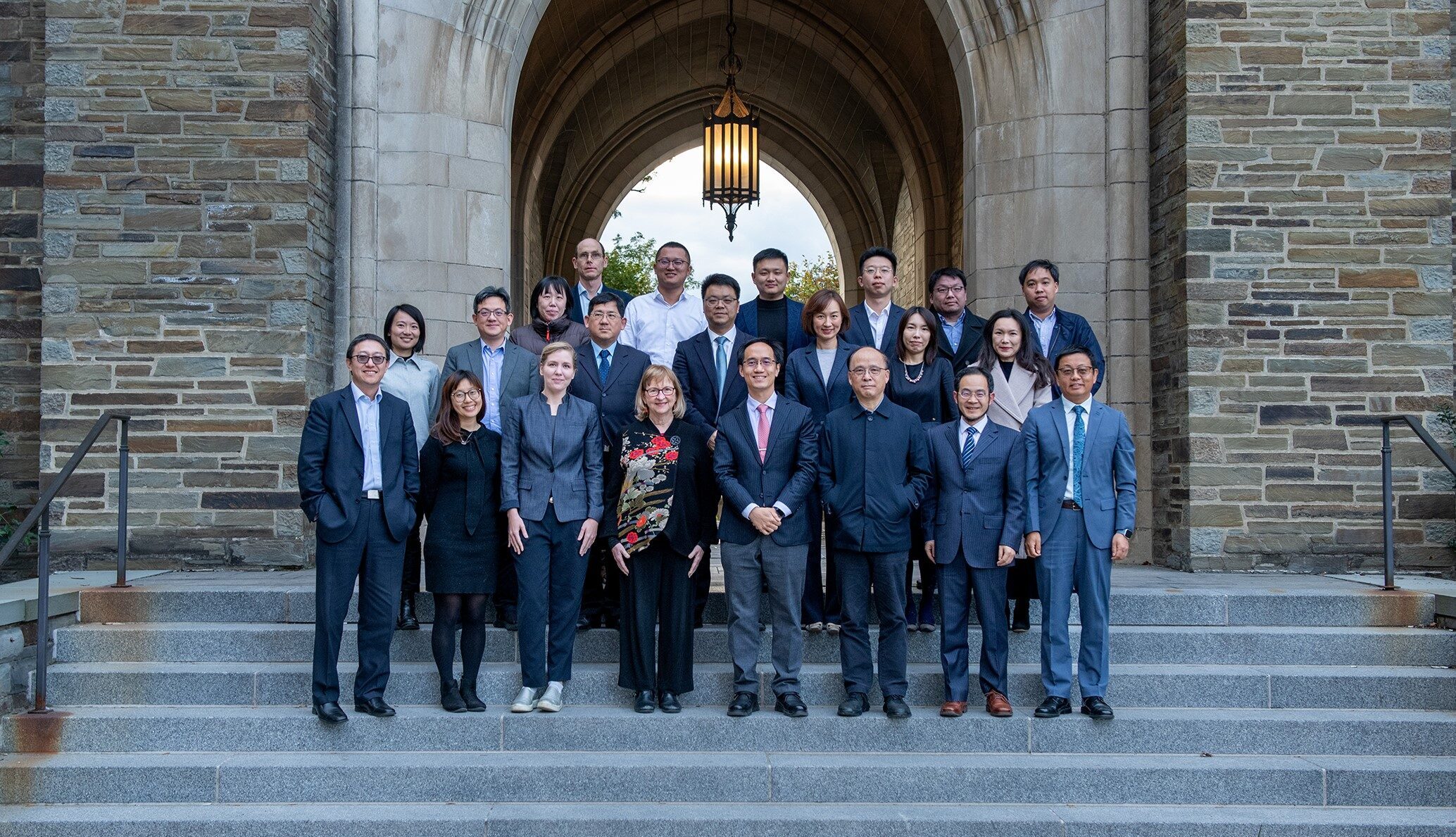
On October 9 and 10, Cornell Law School’s Clarke Program in East Asian Law & Culture hosted a conference on “Empirical Legal Studies in the Sinophone Region” at the Law School. The conference brought together scholars and students who are interested in applying data analysis and other empirical social science research methods to legal questions across the Chinese-speaking world.
“Cornell Law School has one of the strongest empirical legal studies faculty in the nation─in fact, in the world,” said Yun-chien Chang, who since January has served as the Jack G. Clarke Professor in East Asian Law and the director of the Clarke Program. “As the East Asian law chair, my role is to promote mutual understanding between the U.S. and East Asia. This conference promotes this goal through crunching numbers.”
Over the conference, 19 scholars hailing from Chinese and Taiwanese institutions as well as from Cornell and other U.S. universities presented on a range of topics that they approached through varying empirical methods. Professor Weimin Zuo of Sichuan University talked about his examination of debates over reforms to China’s Civil Procedure Law and how they balanced litigants’ rights versus efficiency. Professor Bing Shui of the University of Macau used text mining to examine the extent to which private litigation is affected by the Chinese constitution. Professor Zhuang Liu of the University of Hong Kong investigated the judicial and economic outcomes arising from the substantial numbers of Chinese judges who leave the bench to become lawyers. Professor Weijia Rao of Antonin Scalia Law School at George Mason University looked at citations to foreign cases in the Hong Kong Court of Final Appeal and their effect on judicial independence.
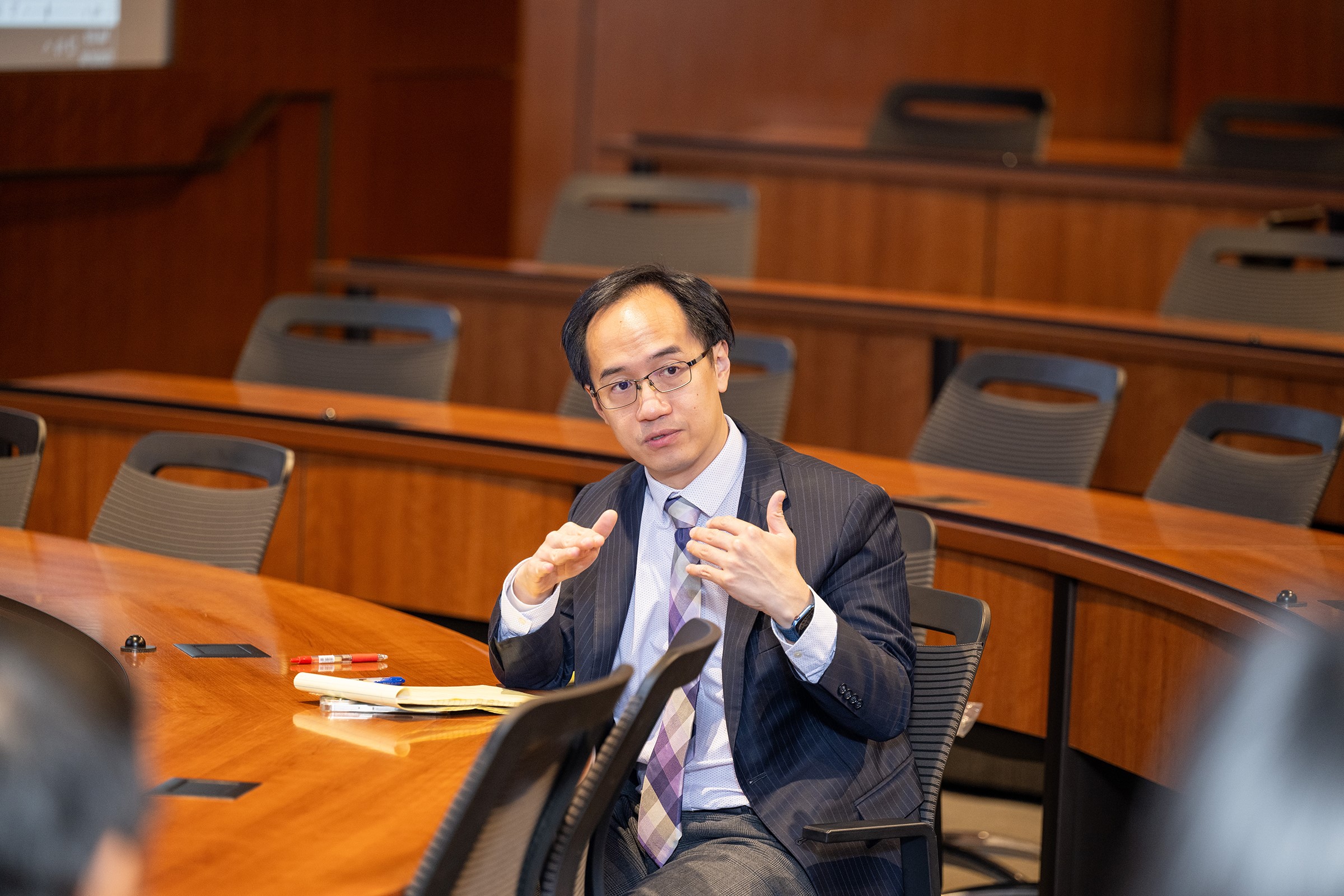
Yun-chien Chang, Jack G. Clarke Professor in East Asian Law and director of the Clarke Program in East Asian Law and Culture, speaking during a panel discussion.
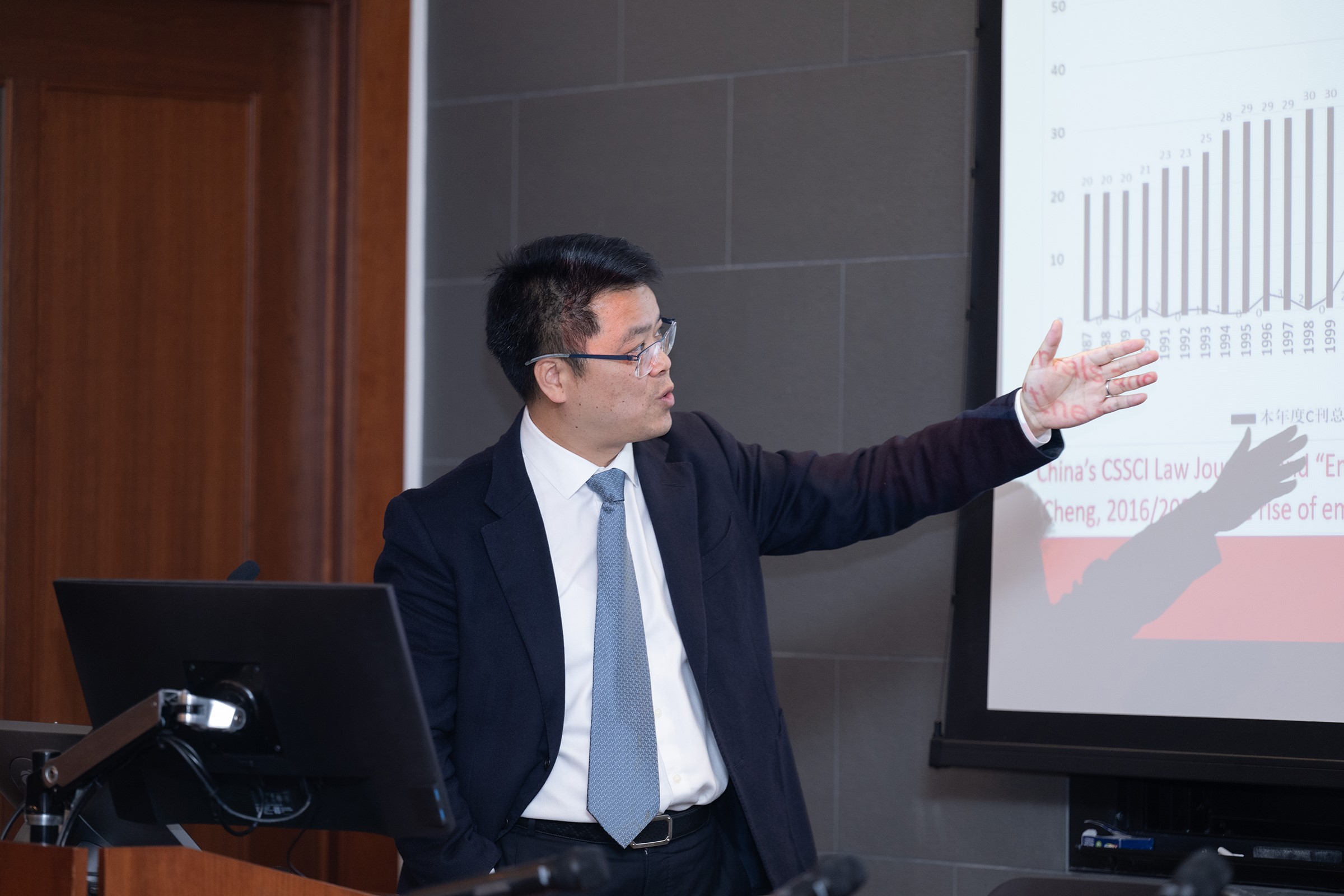
Professor Cheng Jinhua, KoGuan School of Law, Shanghai Jiao Tong University
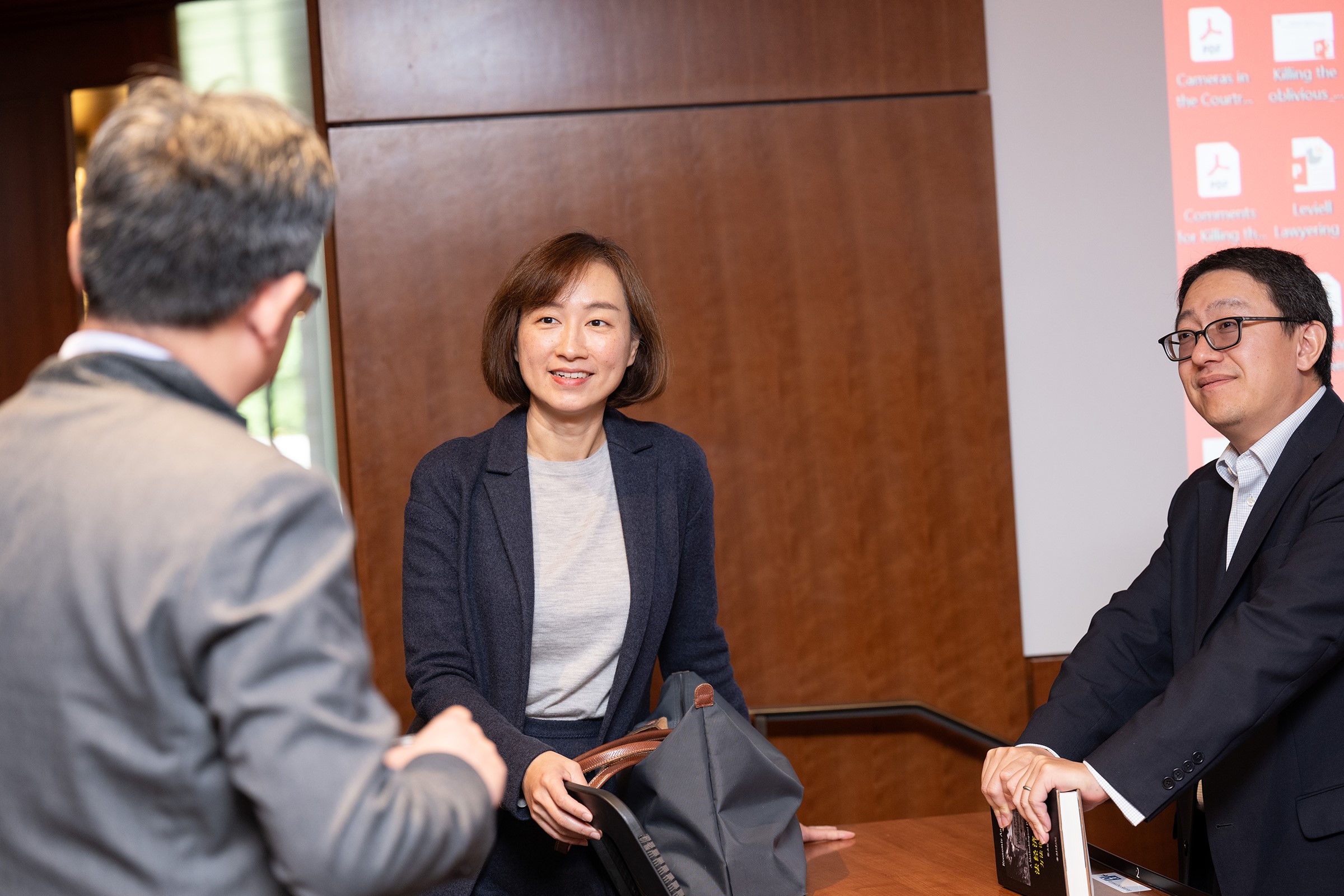
Conference participants during break in conference programming. From Left to Right: Yen-tu Su, Lauren Lin, Ji Li
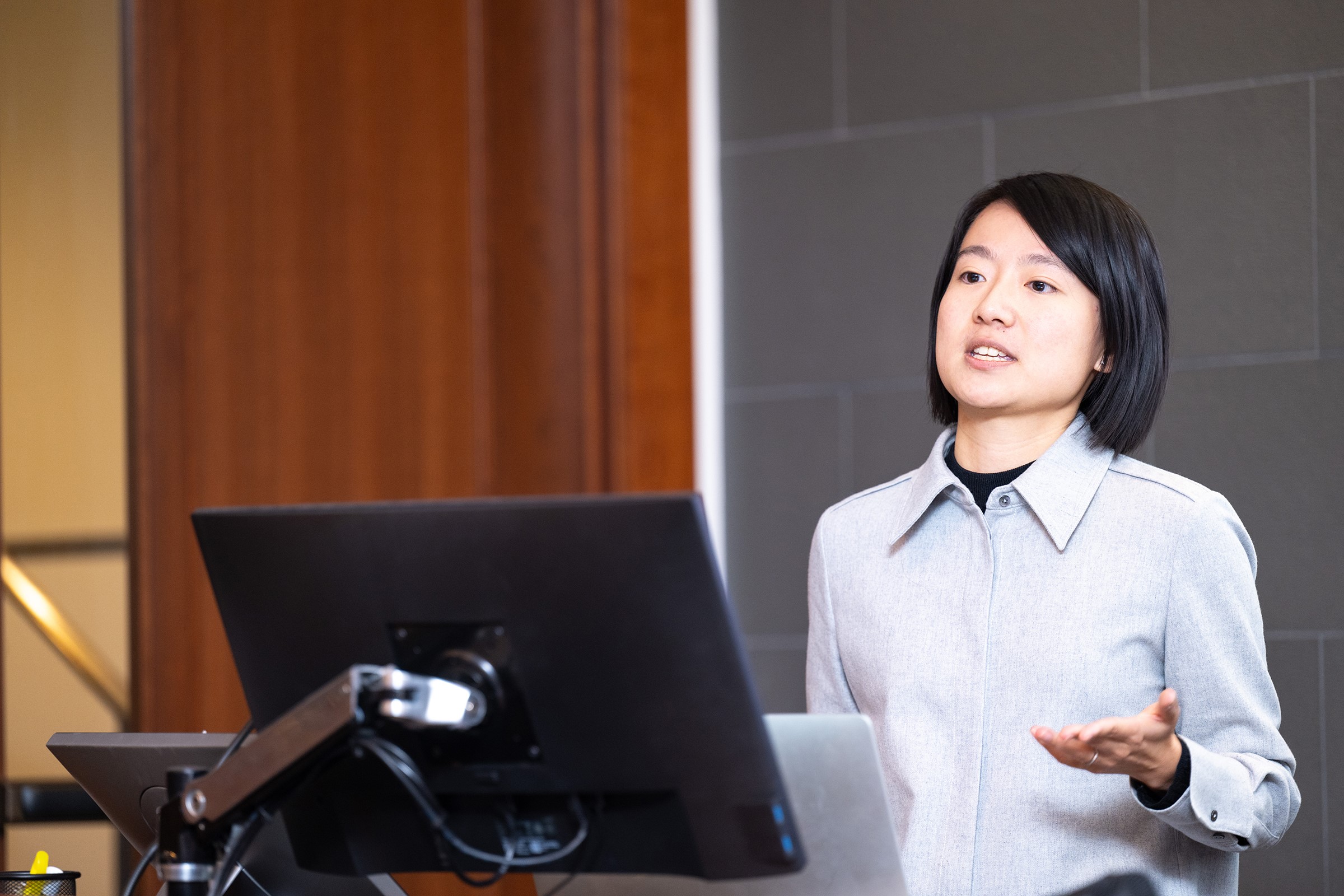
Weijia Rao, Assistant Professor of Law at Antonin Scalia Law School, George Mason University,
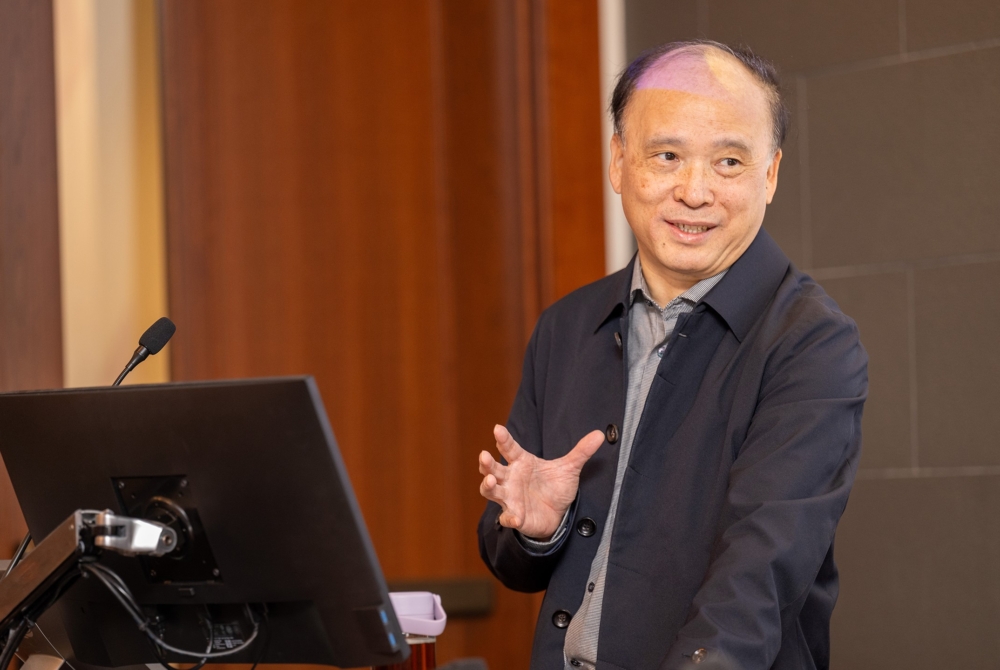
Professor ZUO Wei-min, Sichuan University of Law
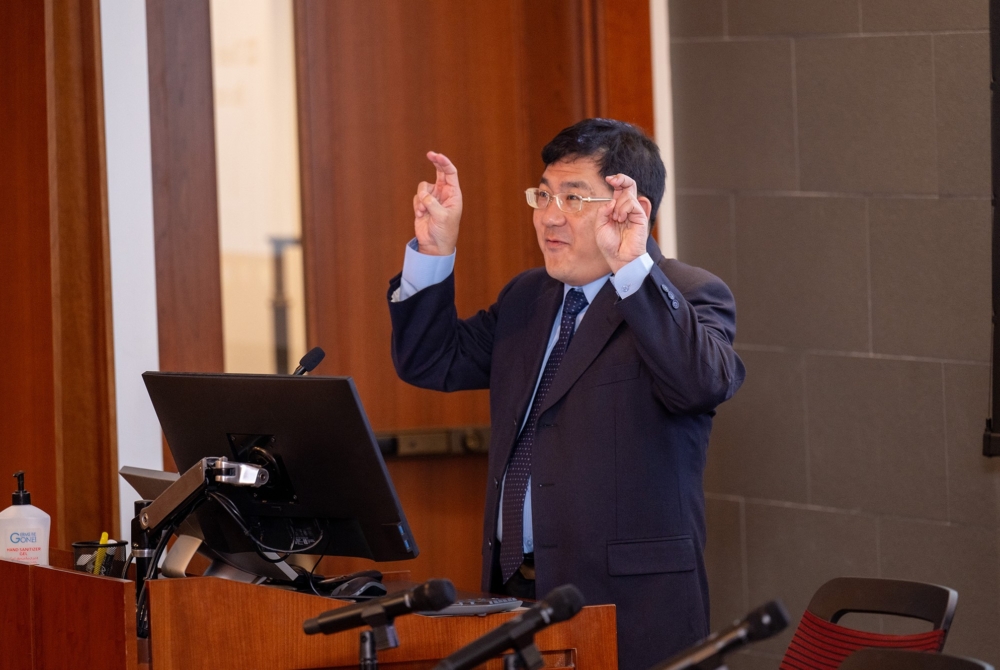
Professor Chang-ching Lin, National Cheng Kung University
Taiwanese legal issues were well-represented, ranging from a presentation by Professor Chang-Ching Lin of National Cheng Kung University on judges’ gender, political correctness and sentencing in domestic violence trials, to Professor Keng-Wei Fan of National Dong Hwa University’s analysis of cultural defenses presented by Indigenous defendants in Taiwan’s criminal courts. Professor Yen-Tu Su of Institutum Iurisprudentiae, Academia Sinica analyzed the effect of recent reforms to the Taiwan Constitutional Court, while Han-Wei Ho, also of Institutum Iurisprudentiae, examined equity factors in drug trafficking sentencing.
Several talks centered on issues stretching beyond the Sinosphere’s borders. Professor Ji Li of the University of California, Irvine School of Law presented on his analysis of the lives of Chinese immigrant lawyers in the U.S. Professor Chang, of Cornell, explored whether legal origins or colonial histories better predict similarity in law. Another Cornellian, I-An “Amy” Su, a psychology Ph.D. candidate, presented her work regarding competency for execution in U.S. capital cases.
“This conference’s participants were all born in the Sinophone region, and use data related to China, Hong Kong and Taiwan to flesh out insights that are impossible or difficult to obtain through traditional methods,” Chang said.
Chang and nine other faculty members from Cornell, Columbia Law School and Birkbeck, University of London moderated the presentations.
The conference was cosponsored by Cornell’s Mario Einaudi Center for International Studies, East Asia Program and Cornell Center for Social Sciences, and by the Taipei-based Chiang Ching-kuo Foundation for International Scholarly Exchange.